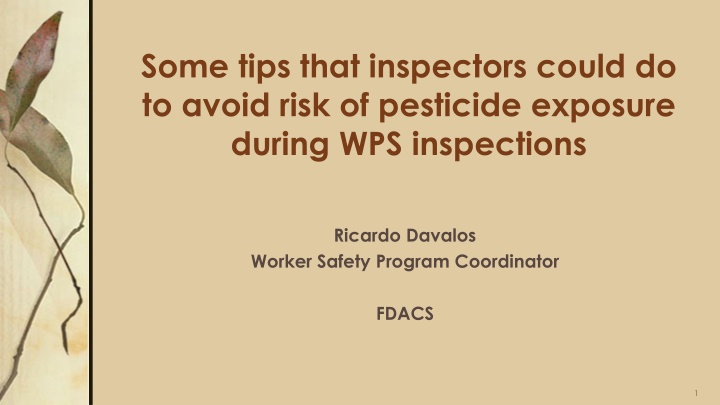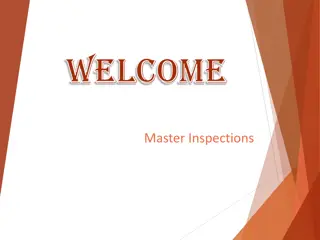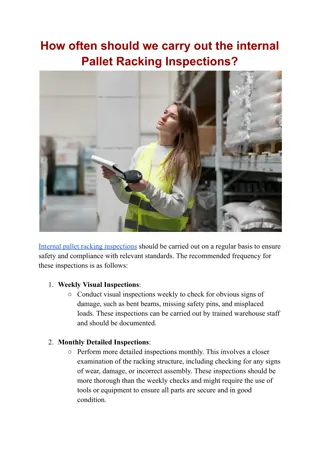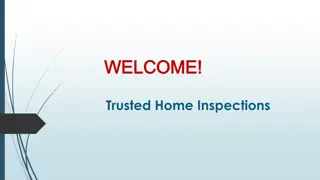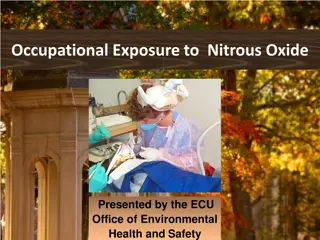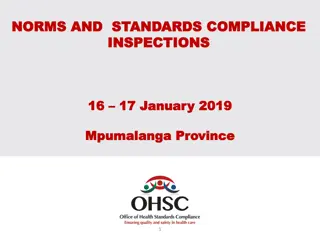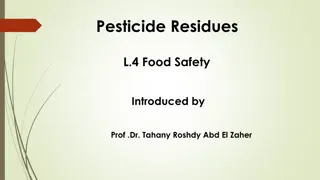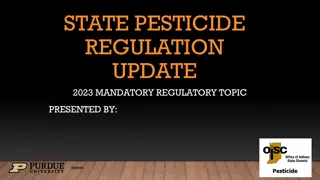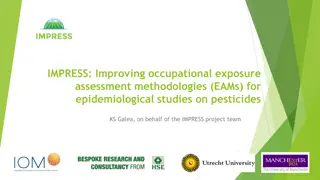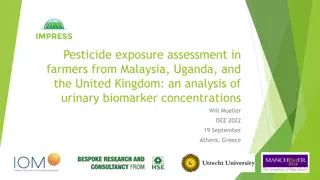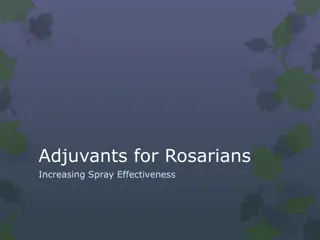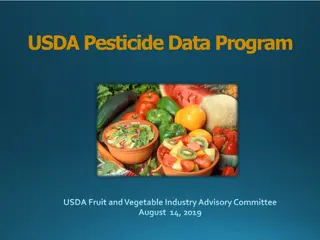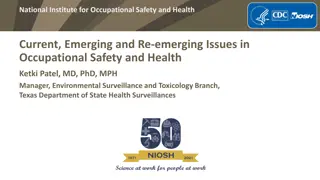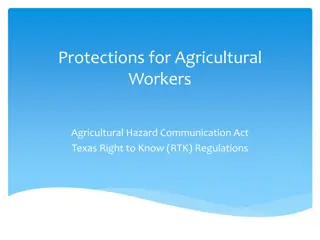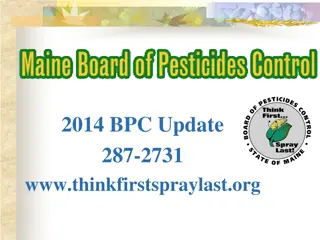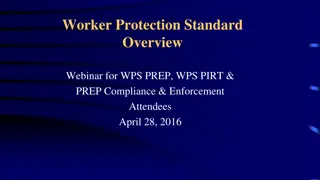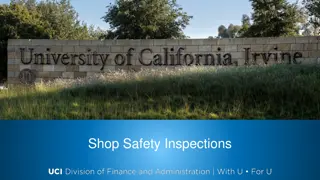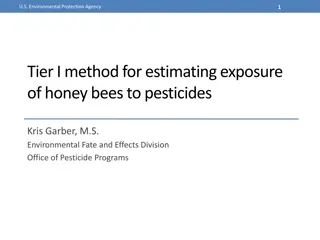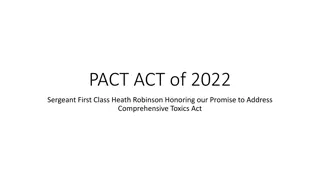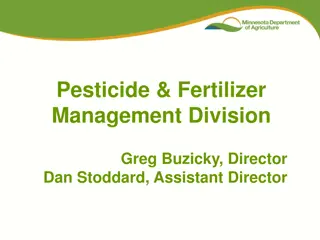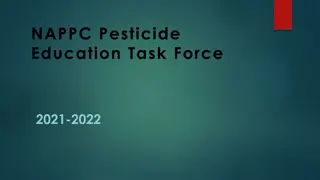Tips to Prevent Pesticide Exposure During WPS Inspections
Inspectors should be familiar with establishment operations, inquire about pesticide use, avoid entering treated areas without assurance, wear proper PPE, identify decontamination supplies, and practice good hygiene to minimize the risk of pesticide exposure during inspections. These precautions help ensure safety and protect against potential health hazards.
Download Presentation

Please find below an Image/Link to download the presentation.
The content on the website is provided AS IS for your information and personal use only. It may not be sold, licensed, or shared on other websites without obtaining consent from the author.If you encounter any issues during the download, it is possible that the publisher has removed the file from their server.
You are allowed to download the files provided on this website for personal or commercial use, subject to the condition that they are used lawfully. All files are the property of their respective owners.
The content on the website is provided AS IS for your information and personal use only. It may not be sold, licensed, or shared on other websites without obtaining consent from the author.
E N D
Presentation Transcript
Some tips that inspectors could do to avoid risk of pesticide exposure during WPS inspections Ricardo Davalos Worker Safety Program Coordinator FDACS 1
Things that Inspectors could do to avoid risk of exposure: Be familiar with the firm operations, background and safety procedures. Ask the owner, supervisor or person in charge of the establishment if any pesticide application is taking place during your inspection. Ask if any area was treated with pesticides or any other product before your arrival. Do not enter areas under REI or with WPS warning signs on, before ask the firm, why the signs are up? Or if there is any area under REI? 2
Things that inspectors could do to avoid risk of exposure: Do not enter areas, greenhouses or enclosure structures without assurance that pesticides are not being use. Do not enter areas, greenhouses or enclosure structures without assurance that there is not an REI in effect and/or the proper ventilation criteria is meet. Remember pesticides residues can be found on plants, soil, air, application equipment and/or water. Avoid contact without proper PPE. 3
Things that inspectors could do to avoid risk of exposure: Use the appropriate PPE when is needed (Sampling) Follow your sampling manual protocols Wear the PPE according to label directions. Follow the proper maintenance and storage of PPE Always follow label directions Identify areas being sprayed and avoid areas with potential drift 4
Things that inspectors could do to avoid risk of exposure: Identify where decontamination supplies are located (water, soap and towels) Have handy the important numbers, like Poison Control When using PPE be alert of symptoms related to heat stress If working nearby ongoing pesticide applications stay alert of the firm activities and observe your surroundings Make sure you have a first aid kit and fire extinguisher on your vehicle 5
Things that inspectors could do to avoid risk of exposure: Follow good hygienic practices and standard decontamination procedures. Wash your hand frequently and before eating, drinking, chewing gum or tobacco, or using the toilet. Remove potential contaminated work clothes and shoes before enter home. Do not mix work and family/household clothes while doing laundry. 6
Things that inspectors could do to avoid risk of exposure: After working in areas with potential contamination do not come in contact with other family members before follow proper decontamination procedures. Never take agricultural pesticides home Never re-package pesticides or reuse pesticides container Never transport pesticides in the cab of your truck 7
Things that inspectors could do to avoid risk of exposure: Know where is the nearest medical facility In case of exposure follow decontamination procedures Seek medical attention Provide the medical personnel with SDS Report to your supervisor immediately, follow your division incident report protocols 8
This presentation just cover some but no all safety elements that can help you to avoid pesticide exposure during your pesticide use inspections. Always follow safety procedures and polices established for your Bureau, Division, FDACS and/or State. Questions ?
For more information on WPS contact us at: Florida Department of Agriculture and Consumer Services Division of Agricultural Environmental Services Bureau of Scientific Evaluation and Technical Assistance Agricultural Worker Safety Program Ricardo Davalos Ph. No. (850) 528 5402 E-mail: wps@freshfromflorida.com
